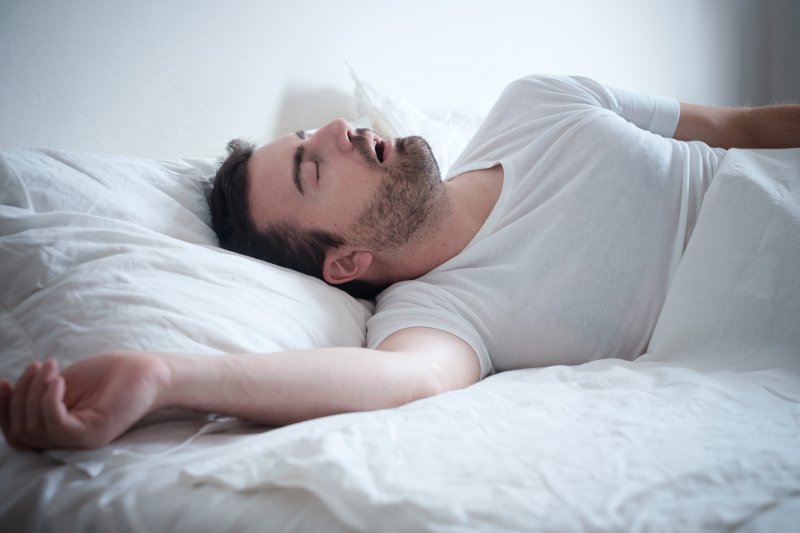
If you’ve ever cared about maintaining a youthful appearance and you also suffer from sleep apnea, you’ll want to consider a recent study conducted by the American Academy of Sleep Medicine (AASM), which noted that sleep apnea in Columbus can actually lead to epigenetic age acceleration. Whether you believe you have sleep apnea or know someone suffering from the condition, there’s no better time than now to seek treatment from a dentist trained in providing relief.
A Brief Breakdown of the AASM Study
The study involved 622 participants, 53% of which were women. According to lead author, Xiaoyu Li, a post-doctoral research fellow, “Individuals whose biological age is higher than their chronological age exhibit age acceleration or fast aging. In our study, we found that more severe sleep-disordered breathing is associated with epigenetic age acceleration. Our data provide biological evidence supporting adverse physiological and health effects of untreated sleep-disordered breathing.”
Epigenetic age acceleration is a DNA methylation-based marker of fast biological aging, which essentially means that while a person may be of a certain age chronologically, it may not be the same as their biological age if they experience untreated sleep apnea symptoms. In layman’s terms, it means that not treating sleep apnea symptoms could cause you to age faster relative to your chronological (or actual) age.
Main Takeaways to Know
There are two main points to take away from in this study. For starters, each standard deviation increase in the apnea-hypopnea index, which is a measure of sleep-disordered breathing severity, was associated with the equivalent of 215 days of biological age acceleration. Additionally, each standard deviation in the arousal index, which includes sleep disruptions (i.e. apneas that force participants awake), was associated with 321 days of age acceleration.
The second takeaway is that study authors noticed these associations to be stronger in women compared to men. This suggests that women may be more vulnerable to the adverse side effects associated with sleep disorders like obstructive sleep apnea.
Li goes on to note that women are often considered to be at lower risk for health outcomes related to sleep-disordered breathing. However, these results suggest they could be more biologically susceptible.
How to Recognize Sleep Apnea Symptoms
While it’s been known for a very long time that sleep-disordered breathing and sleep disruptions can have negative long-term health effects, sleep apnea often goes undiagnosed. If you believe that you or a family member are suffering from sleep apnea, be on the lookout for the following symptoms:
- Loud, chronic snoring
- Excessive daytime sleepiness or fatigue
- Waking up suddenly from sleep, typically coughing or gasping for air
- Frequent nighttime urination
- Sudden mood swings and/or irritability
- Headaches upon waking
Don’t let sleep apnea cause problems for your long-term health any longer. With the help of a sleep dentist, you can get dedicated treatment through a custom-made oral appliance, potentially removing the need for an CPAP machine!
About the Author
Dr. Eric Buck is a dentist highly trained to perform oral appliance therapy for those suffering from sleep apnea. He is currently a member of the American Academy of Dental Sleep Medicine and holds access to a variety of materials with the organization to help patients get a better night’s sleep. To learn more about his expertise or address your sleep apnea symptoms, you can contact him through his website.
